Ordovician Period
The Ordovician Period is the second period of the Paleozoic Era, spanning approximately from 485.4 to 443.8 million years ago. It is named after the Celtic tribe of the Ordovices.
Geology
The Ordovician Period is characterized by the presence of diverse marine life and significant geological events. The period is marked by the formation of extensive shallow seas and the emergence of early vertebrates and complex marine invertebrates.
Climate
The climate during the Ordovician Period was generally warm, with a relatively stable global climate. However, there were fluctuations in sea levels and glaciation events in the later part of the period.
Life Forms
The Ordovician Period is known for the rapid diversification and proliferation of marine life. It witnessed the rise of various marine invertebrates such as trilobites, brachiopods, cephalopods, and graptolites. Additionally, early vertebrates and jawless fish appeared during this time.
Study Guide for the Ordovician Period
- What is the Ordovician Period?
- Describe the geological characteristics of the Ordovician Period.
- Discuss the climate during the Ordovician Period.
- Identify the significant life forms that emerged during the Ordovician Period.
- Explain the impact of the Ordovician Period on the diversification of marine life.
- Compare and contrast the Ordovician Period with the preceding and succeeding periods.
[Ordovician] Related Worksheets and Study Guides:
.◂Science Worksheets and Study Guides Sixth Grade. Genetics - Study of Heredity

 Activity Lesson
Activity Lesson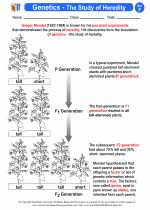
 Worksheet/Answer key
Worksheet/Answer key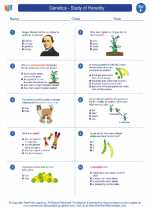
 Worksheet/Answer key
Worksheet/Answer key
 Worksheet/Answer key
Worksheet/Answer key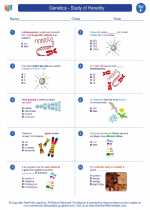
 Vocabulary/Answer key
Vocabulary/Answer key
 Vocabulary/Answer key
Vocabulary/Answer key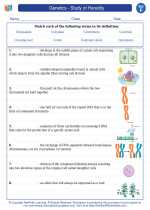
 Vocabulary/Answer key
Vocabulary/Answer key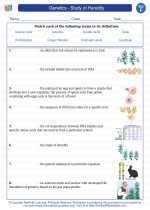
 Vocabulary/Answer key
Vocabulary/Answer key
 Vocabulary/Answer key
Vocabulary/Answer key
 Vocabulary/Answer key
Vocabulary/Answer key
 Vocabulary/Answer key
Vocabulary/Answer key
 Vocabulary/Answer key
Vocabulary/Answer key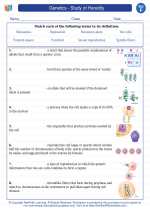
 Vocabulary/Answer key
Vocabulary/Answer key
